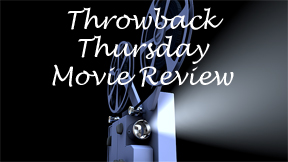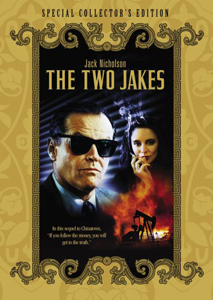“Chinatown” (1974) is one of the most important Seventies neo-noirs, and one of the most straightforward, as it is set during the OG era of hardboiled fiction, the Thirties. Its sequel, “The Two Jakes” (1990), is a fun continuation, bringing classic noir style – and one of Jack Nicholson’s most entertaining characters — back during a relatively slow time for the genre.
Nicholson runs the show
Nicholson, who also directs, is again a blast to watch as he glides back into this Sam Spade-style role. I would’ve happily followed this private eye into more movies, but a third film (to be called “Gittes vs. Gittes”) unfortunately never materialized and never will, as Nicholson has retired and screenwriter Robert Towne died earlier this year.
Since Nicholson played the Joker one year earlier, viewers in 1990 might’ve found J.J. (Jake) Gittes rather basic, but if you’re on a noir kick you can’t go wrong, especially since Towne adds voiceover narration that was absent from “Chinatown.” (Among Gittes’ nuggets: “Everyone makes mistakes, but marriage is the only one you spend your whole life paying for.”) Gittes’ P.I. firm is doing well, and we see more logistics, like help from his assistant operatives. (“You got dimes?” he asks, in this era of pay phones.)

“The Two Jakes” (1990)
Director: Jack Nicholson
Writer: Robert Towne
Stars: Jack Nicholson, Harvey Keitel, Meg Tilly
Townes ties “The Two Jakes” into “Chinatown” smoothly enough to keep me engaged, but confusingly enough that I couldn’t give you a detailed synopsis even right after watching the film. The core point of the “Chinatown” series is that corruption is confusing as hell to untangle, so that’s a built-in excuse for Towne.
Thematically, he switches from water utilities to oil rights in the Los Angeles area, again with people so powerful that they can do whatever they want as long as they are marginally clever. The environmental twist will make modern viewers think of the fracking controversy. It’s sneaky of the baddies to drill sideways under the residential development property of Jake Berman (Harvey Keitel), but if homes start blowing up, that’s not good for anyone.
The plot is convoluted but clever. The two Jakes are tied together by a contract; Gittes is being pressured by the police (Perry Lopez returns as Escobar) to turn over evidence; Gittes holds to the ethics of his job but he is not going to personally take the fall for a client. It’s more narratively confusing than it needs to be, but suffice it to say “The Two Jakes” is a film where Gittes and Berman can be tight in one scene and exchanging threats in another.
Other genres seep into the bedrock
As this was a cinematic era when gangster, courtroom and sex-drama films had knocked aside pure noir, there is a touch of these, but not in a bad way. Keitel naturally brings some of that gangster flavor, but Meg Tilly (as Berman’s young wife) embraces the noir tropes with her soft, innocent voice that has somehow been through so much.

Nicholson strives to keep “The Two Jakes” a personal tale. Oddly, Gittes’ fiancée barely plays a role. Maybe she’s not even needed, since Gittes has an emotional connection to Katherine Mulwray (the daughter of the woman he loved in “Chinatown”). Adding a darker side to the femme fatale formula is Madeline Stowe as Lillian, the wife of a man killed in a pivotal opening scene.
In happily blending genres, director Nicholson doesn’t seem too concerned with getting everyone on the same page. But he and Towne can’t go wrong by bringing back James Hong as Kahn and having him talk this time. In Hong’s ridiculously stacked resume, the SF-noir “Blade Runner” stands out, of course. But it’s interesting to note he also appeared in the “X-Files” episode “Hell Money,” which plays on “Chinatown’s” notion of an indecipherable Chinese-American culture tucked within big cities.
Nicholson’s direction isn’t at the level of Roman Polanski’s, as the pacing and tone aren’t so smooth. The intimate encounter between Gittes and Lillian is particularly envelope-pushing. Lensed by Vilmos Zsigmond, “The Two Jakes” looks great, with lots of desert sunshine. But my particular favorite shots are Gittes’ high-rise office with a colorful evening sky out the window.
This “Chinatown” sequel again has us reflecting on how L.A. was built via corrupt backroom dealings and greased (or should we say oiled?) palms. Also, again, it is a work of fiction, so we mostly see it as entertainment. On that latter point, “The Two Jakes” succeeds – not as wondrously as “Chinatown,” but it’s certainly a productive day at the office.

